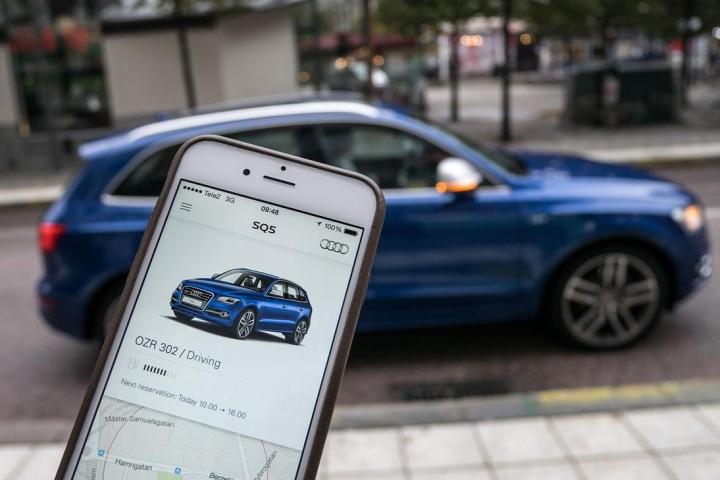
Over a lunch conversation at the 2015 Geneva Motor Show this week, Audi of America President Scott Keogh revealed that the German automaker is preparing to release its first car-sharing app in the U.S.
Unlike current car sharing programs offered by Car2Go or BMW, the Audi program wouldn’t offer up the keys to a fleet of share-only vehicles but rather as a pay-as-you-go additional extra to Audi owners.
“Let’s say you’re an A6 owner,” Keogh proposed, “and you have a big business meeting later in the week and want to look like a boss and arrive in an R8. This app would let you do that.”
Though Keogh was scarce on exact details, as best as I can put together, the app would allow Audi owners to logon, choose an Audi they wish to drive, the amount of time, and it would then charge them a one-time fee for the vehicle loan, rather than a monthly subscription fee. “It’s essentially a premium rental program,” Keogh admitted.
This would be ideal for more than just drivers keen to get behind the wheel of the brand’s latest sports- or super-cars. If A3-owning urbanites need a big, family-hauling SUV for the weekend, they could swap out their compact sedan for a Q7, too.
When pressed on what other car sharing avenues Audi America might venture down, Keogh conceded he could also see a future in which condominium buildings might offer Audis as an amenity to ownership. “With your condo you get a pool and one of five Audis to drive.”
That said, Keogh did not see a viable business model in Audi sustaining a fleet of share-only cars, much like Car2Go, nor did he see Sweden’s ‘Audi Unite’ shared ownership program working in America.
So it looks like, with the Audi car-sharing app on your smartphone, you still might be able to get to drive all the latest Audis after all … you’ll just have to buy one first.


